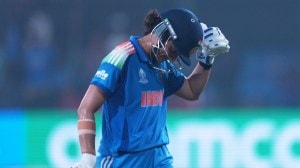England reap benefits of hard work and hard choices
England are playing good cricket and that must seem a bizarre, other-worldly, Rowling-esque statement to anyone who started following the ga...

England are playing good cricket and that must seem a bizarre, other-worldly, Rowling-esque statement to anyone who started following the game when the eighties were giving way to the nineties. Indeed, if they glowed for a while in that decade it was only because Australia were playing even poorer cricket. That is how queer it was!
It grew darker in the nineties. English rugby floundered, football was beset with crisis and every two years Australia stomped over England at cricket with the glee with which a high school bully snatches a preppie’s sandwich. The world needed England but England were too soft. They were like the ancient Indian Brahmins who believed wisdom was their prerogative, getting hands dirty someone else’s.
Losing can become a downward spiral. Defeat gnaws at confidence and poor self-belief prevents victory. Somebody needed to confront this spiral, stand up to it with deeds rather than the easier words. At cricket, a quiet backroom man and an aggressive, even abrasive leader came forth. England needed them, needed their steel. If they are playing good cricket today it is because Nasser Husain and Duncan Fletcher withstood the storm. Nowhere was this more evident than on the sub-continent. Traditionally, English teams gave the impression that they packed their excuses before their bats, their moans before their resolve. Remember 1993 when England lost to the pollution in Kolkata and to the prawns in Chennai but not to a better side. They were not good enough but they were not willing to accept that.
Husain and Fletcher had a more realistic and therefore, more defiant, approach. The poetry of the language might have been lost on them but they were willing to tell their teams to scrap and to accept. They won in Pakistan and Sri Lanka and were starting to look good in India by the time the series ended. But Australia remained their nemesis; everytime they looked like building a castle, the Aussie wave would wash it away. Without quite producing the turnaround that Border and Simpson could, Husain and Fletcher changed the way England played cricket. Then two other factors came along. Somebody somewhere decided to recruit Rod Marsh as the head of their new academy. You couldn’t be less English than Marsh who is straight, blunt and tough. England needed a straight-talking talent-spotter who would look beyond batting averages fattened by inconsequential county games, who would look for big hearts to bowl on hot unrewarding days. You can see that in Trescothick and Vaughan, Hoggard and Harmison. Those four have been fine selections and confirm the theory that at the heart of a cricket turnaround is an honest, down-to-earth selection policy. Honest selectors and tough coaches produce good cricket teams, neither is popular.
Now they have found the right men for two key positions, No 6 and No 7. Unless you are a great team that needs no all-rounders, like the West Indies of the eighties and Australians of today, the seam bowler who can bat is the hub of most good sides. Now Flintoff is doing for England what Kallis did for South Africa and Cairns did, on a good day, for New Zealand. By being able to bat in the top six, he allows the side to play five bowlers and, unless you are either of the two great sides just mentioned, you need that many to win matches consistently. He hits the deck hard and bowls stingily and the ball seems to like the comfort of his hands at second slip.
And they have a wicket keeper who is good enough to be a batsman; who can stop the flow of wickets if needed, crash the ball around if that is required too. The world around, teams have searched high and low for their own Adam Gilchrist and discovered that he is a rare phenomenon. In Geraint Jones, who too has made a late debut, England look like they might be on that path. It is too early to tell but it is a promising lead to pursue. They have shown great faith as well in Graham Thorpe, their best batsman in the last 15 years; above Atherton and Stewart and Husain and a declining Graham Gooch. Thorpe is the unseen pillar of this English side and England will try and squeeze two more years out of him.
If they can prevent this castle from being washed away once again by the Aussie wave next year, if they can keep their bowlers fit and if they can travel without grumbling, England will be the team to watch out for.





- 01
- 02
- 03
- 04
- 05


























